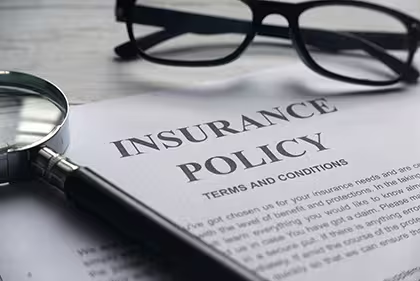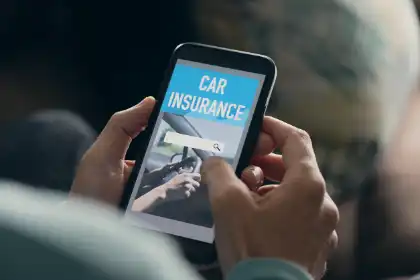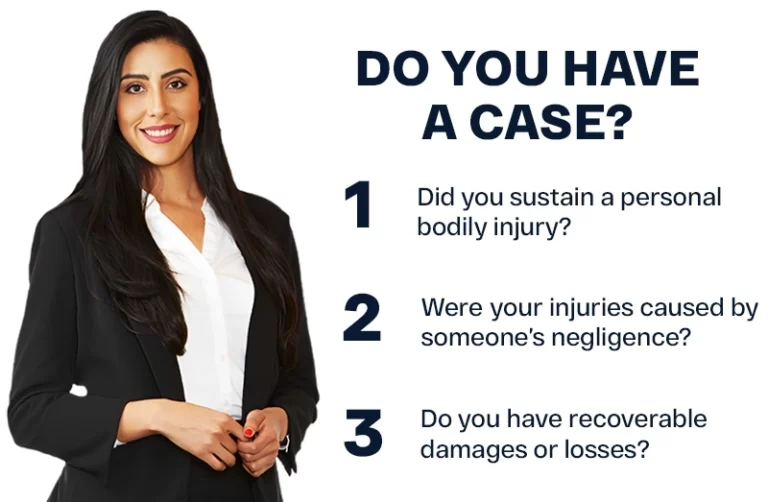Table of Contents
Traffic accidents can happen at any given time, and the financial consequences of these accidents can extend far beyond the initial repair costs of the car. Even minor accidents can cause a significant increase in your insurance rates. However, this does not have to be the case. By making smart choices, you may still be able to save on your car insurance rates, even after an accident.
Since you are reading this, we can assume you were recently in a crash or know someone involved in a motor vehicle accident. If you are reading this to learn more about potential rate changes after a traffic accident, we’re here to help you prepare and plan.
How To Keep Your Car Insurance Rate Low After An Accident
Even if no one was injured in a traffic incident, whether a head-on collision, a rear-end crash, or a sideswipe accident, you may experience a jump in price for your car insurance renewal. Insurers consider drivers who get involved in accidents to be a higher risk, so they raise the premiums to offset their potential losses.
However, it is possible that you won’t see any increase in your insurance premium. In particular, if:
- You are not at fault for an accident.
- It is the first accident you were involved in.
- Your history is clear of any insurance claims or driving violations.
On the other hand, if you are the one to blame or have been involved in far too many accidents, you may experience an increase in your auto insurance. The extent of the increase will vary based on the provider, your claims history, and the severity of the car accident.
For example, your premium may increase if someone is injured and you are found to be at fault for an accident that results in injury. This increase happens because you’ll likely lose the Good Driver Discount on your insurance policy. The challenging part of this is that the increases in premiums can last for up to three years, depending on your insurer’s policies.
Below, we will go over how to avoid an insurance increase after an accident.
Tell Your Insurer About The Accident, No Matter The Scale
Let’s say you were involved in a minor fender-bender in a left-turn accident. Even if you weren’t at fault and no one was injured, it might be tempting to skip reporting the accident to your insurance company. After all, you might think, “What they don’t know won’t hurt me.” However, that’s not the case.
Suppose the other person involved suddenly decides to sue you, even though you both agreed at the scene that you wouldn’t. If you do not report the accident right away, regardless of whether it’s a minor collision or a fatal car accident, a car insurance company could potentially refuse to honor your policy. In these situations, auto injury attorneys can explain your legal options, clarify your coverage, and guide you through the claims process to help you make informed decisions about your case. That’s why, regardless of who is responsible for the accident or how big it was, it’s important to report the incident promptly.
Look For An “Accident Forgiveness” Clause In Your Policy
According to industry estimates from car insurance companies, the average driver may be involved in an automobile accident every 17.9 years. Some insurers offer accident forgiveness programs, which may waive a premium increase for your first at-fault accident if you meet certain criteria.
The specifics of this clause differ by insurance provider, so it is essential that you thoroughly read this provision in your policy. Some companies automatically offer accident forgiveness, while others provide it only after you have been accident-free for some time, usually between three and five years. They can also require policyholders not to have any moving violations for up to three years.
Remember, though, that having this clause in your policy doesn’t mean the accident won’t go on your driving record. Your insurance provider may not raise your premium after the first car collision. However, if you eventually decide to switch insurers, they will see the incident on your record and may adjust your rate as they see fit.
Also, accident forgiveness typically applies once per policy, not per driver on the policy. With some companies, only one accident per policy is forgiven, regardless of which covered driver is at fault, and even if it’s your first time getting involved in an automobile accident. Others may offer accident forgiveness on a per-driver basis, allowing each eligible driver to use it once. Review your policy details to understand how accident forgiveness applies to your specific situation.
Accident forgiveness isn’t often available. Some insurers may not offer it, and some states do not allow it. In California, for example, Proposition 103 prevents insurance companies from charging too much for their policies. Since accident forgiveness often means charging higher rates to offset the possible costs, insurers do not offer these endorsements. You can ask your automobile accident lawyer to review your policy.
Opt For Higher Deductibles
The deductibles are the amount you pay after your claim has been filed and your insurance kicks in. If you request a higher deductible, you can reduce other costs substantially. Let’s say, for example, you raise your deductible from $250 to $550. This may result in lower premiums for your comprehensive and collision coverage.
However, before deciding on a higher deductible, check if you have enough set aside to pay this amount if you decide to file a claim.
A key to saving is not the discounts themselves but the final price. Some companies may only offer some of these discounts, but even without all the deductions, their rate may be lower overall than a company that does provide all of them.
Consider Reducing Your Coverage
If an auto accident prompts your insurer to increase your premium and you cannot afford it anymore, consider reducing your coverage. Just confirm you still have the minimum coverage required by the state.
To lower your rates, consider removing comprehensive and collision coverage from your policy. Keep in mind that this may not be applicable in all situations, especially if you have a new car that you’re still paying off. Besides possibly being required by your auto loan provider, comprehensive and collision coverage also provides protection when you cannot afford to replace or repair your vehicle after a traffic-related accident.
Comprehensive coverage applies to damages resulting from vandalism, theft, hail, fire, and animal-related accidents. Collision coverage, on the other hand, applies to the damages you incur after colliding with another vehicle or crashing into a fixed object.
You might need these additional coverages if there is a high risk of unexpected non-collision events where you live. Finally, consider retaining these coverages in your policy if there are many uninsured or underinsured motorists in your area.
Conversely, you may do away with comprehensive and collision coverage if you have a fully paid older vehicle you can afford to replace after an unforeseen car accident. Also, if the additional coverages exceed 10% of your car’s current value, they might not be worth paying for. You can check your car’s current value through the Kelley Blue Book.
Take Advantage Of Insurance Discounts
Another tip for lowering car insurance is to apply for discounts. Insurers provide several discounts to policyholders who qualify. These may be based on your policy, vehicle, affiliations, and driving behavior.
Here are some of the discounts offered by auto insurance companies:
- Anti-Theft Discount — Aside from adding an extra layer of security, installing anti-theft devices or features may also help you save on insurance.
- Auto Pay Discount — Insurers can offer you a discount if you choose to have your monthly insurance payment automatically deducted from your bank account.
- Multi-Car Discount — Insuring multiple cars with the same provider may qualify you for a discount.
- Military Discount — Veterans or members of the armed forces may be eligible for a military discount, if available.
- Paperless Discount — Choosing to have your policy-related documents and bills sent through email is not only convenient but may also make you eligible for a discount on your insurance.
- Student Discount — Some insurance companies reward young drivers who maintain good grades in school with a student discount.
Keep in mind that the actual rates and offers differ across providers. Additionally, these discounts do not automatically apply to your policy. If you want to enjoy these perks, ask your insurance provider to confirm if you qualify for them.
Consider Paying Your Insurance Premium In Full
People typically pay their car insurance premiums every month by check or with a debit or credit card. Others choose to pay through electronic funds transfer (EFT).
However, there’s a way for you to potentially lower your insurance expenses, and that’s by paying your premiums in full. Some insurers offer an additional discount when you choose this option, as it’s better and easier for them to keep track of your payments.
Making a full payment also means you won’t have to worry about remembering to pay your dues on time every month. The upfront cost may be higher, but this option may make you eligible for certain discounts (depending on your insurer), which may help lower your total insurance expenses.
Bundle Two Or More Insurance Policies
You may qualify for lower insurance costs by purchasing multiple policies from the same insurance provider. Bundling is commonly done with home and car insurance, but the discount applies to any two policies or more, as long as they are with the same insurer.
If you already have a home insurance policy, consider buying an auto policy from the same provider (and vice versa).
However, don’t feel obliged to choose a bundled option solely for the discount. Check if you’re still getting enough coverage at a reasonable rate. Otherwise, shop around for different car insurance policies and find the one that works for you.
Inquire About Group Insurance Plans
Another way to possibly lower your insurance rate is to subscribe to a group plan. If you are a member of certain groups or associations, you may be able to get an affiliation discount on your premiums. Keep in mind that the actual rate may differ per insurer.
Some insurance companies offer discounts to members of partner organizations or alumni of certain universities. Additionally, your employer might be affiliated with an insurance provider, potentially qualifying you for further discounts.
Inquire about it with your insurer to know whether you qualify for an affiliation discount.
Attend A Driving Class
You may have thought, or at least hoped, that the last time you would experience driver’s education was at the age of 16. However, if you take the time to study safe driving tips and take a course to refresh your memory, your insurance company might see this as an attempt to improve your current driving skills, especially if you’re an older driver. In turn, some insurers may offer discounts for completing such courses or may consider it during policy renewal.
Attending traffic school is something you can do on your own and then just notify your insurance company about it. Check with your insurance provider in advance to confirm which courses are accepted and whether a discount is available, as programs and eligibility vary by state and insurer.
However, note that this method would not be helpful if you were driving under the influence or driving recklessly when a preventable car accident occurred.
Practice Safe Driving
Another way to potentially reduce your car insurance rates is to avoid car accidents and traffic violations. Driving safely and following traffic regulations are also good practices, as they can help lower your risk of getting into more car accidents, especially ones that result in serious injuries like brain injuries, spinal cord injuries, burns, paralysis, or amputations.
Injury attorneys regularly handle cases where preventable crashes result in costly claims and lifelong impacts, highlighting that safe driving is important for both your health and finances. Maintaining a clean driving record and avoiding further infractions may also contribute to lower insurance rates over time.
Furthermore, maintaining good driving habits may qualify you for additional discounts. Insurance companies in California offer a Good Driver Discount to those who maintain a clean record for a certain amount of time.
Join The Usage-Based Insurance (UBI) Program
If you drive less than 10,000 miles annually, have safe driving habits, and do not often drive at night, you may be eligible for a usage-based car insurance program. Insurers usually offer a telematics discount for drivers who join this program. In exchange, you agree to real-time monitoring of your driving habits through a smartphone app or a device installed in your car.
UBI programs may offer discounts when you enroll and may provide additional discounts if the monitoring device records safe driving habits.
It doesn’t come without risks, though. The device will track everything, meaning your insurer will know if you go over the speed limit or often slam on the brakes too hard. That said, some drivers have reported that their rates increased after the device showed that their driving habits weren’t safe.
So, if you’re considering joining the UBI program, practice safe driving habits and obey traffic regulations.
Switch To A Safer Car That Is Less Expensive To Insure
If you’re financially able, consider buying a new vehicle that is less expensive to insure. Some insurance companies offer discounts for drivers with car models that are three years old or newer. With a new car discount, you might be able to save on your policy.
Some insurance providers offer incentives or discounts to drivers who choose hybrid or other eco-friendly options, which could lower your insurance costs.
Switching to a hybrid or electric vehicle can also help you save more. Some insurance providers offer incentives to drivers who choose alternative energy and other eco-friendly options.
Newer cars are often equipped with more safety features, which may help reduce the likelihood of car accidents. Some insurers may offer discounts for vehicles with advanced safety technology. Keep in mind that insurance premiums for newer and safer models also depend on factors such as repair costs, vehicle value, and model type.
If you cannot afford a good and safe car, consider installing additional safety features in your current vehicle. Some upgrades, such as dual airbags, daytime running headlights, and anti-lock brakes, may qualify you for an additional discount from your insurer.
Ask About Your Insurer’s Loyalty Perks
A loyalty discount may also reduce your car insurance rates if you remain with the same insurer over time. Ask your provider if they offer any loyalty perks, especially if your policy is about to expire. This will help you decide whether to renew your plan with the same company or switch to another provider that offers more benefits.
Some insurers may offer larger discounts the longer you stay with them. Take the time to ask, so you don’t miss any opportunities to potentially lower your insurance rates.
Update Your Personal Information With Your Provider
Have you recently gotten married or moved to an area with fewer people and better weather? If so, update your provider with this information.
Insurers generally consider you a lower-risk driver after getting married, as they assume you are more careful on the road and more financially stable. Moving to a “safer” neighborhood might also get your insurer to reconsider your rates and reduce them accordingly.
Also, inform your insurance provider when moving violations have expired in the last three years, as this may help reduce your insurance rate.
Your insurer will not automatically reduce your rates. Some insurance companies may also consider your credit score to help them determine your rates. Research suggests that there is a correlation between a driver’s credit standing and their likelihood of filing a claim. Specifically, those with high credit scores are generally considered less likely to file a car insurance claim.
Some insurers generally charge higher rates for drivers with a poor credit history to offset their anticipated losses. In contrast, they typically offer lower rates to drivers with good credit scores, whom they consider less risky.
Look into improving your credit standing to qualify for lower car insurance rates. Pay your bills on time and clear any existing debt if possible. Also, monitor your credit score to track improvements and check for inaccuracies in your credit statements.
Keep your credit score high. However, in some states, like California, insurance companies don’t look at your credit history when setting rates for auto policies. Your credit rating won’t decrease or increase your premiums.
Shop For Another Policy
If you are still not satisfied with your renewal rate, take the time to look around for another policy. Every company is different when it comes to pricing, so it is crucial that you shop around for prices. Try to get at least three quotes by calling companies directly or visiting their websites. Comparisons can also sometimes be found at your state insurance department.
Inquire about the discounts they offer and see if you qualify for any of them. Also, let the insurers know if you park your car in your garage rather than on the street. The former makes your car less prone to being stolen or damaged, and as a result, some insurers may be willing to reduce your rates.
Insurance is for financial protection, which is why it is essential that the company you choose for your insurance is financially stable as well. AM Best has an option for you to check out various insurance companies’ financial health and will provide ratings. Another site you can view for this information is Standard & Poor.
Avoid shopping only based on the price. Ask people you trust for recommendations on insurance. You may also contact your state insurance department and ask if they provide information on consumer complaints about the company.
Apart from choosing a financially stable insurance company, consider looking for one with good customer service. Find an agent who is willing to take the time to answer all the questions that you have.
Do not lie when you are looking for a new insurer, as the potential insurer will have all reported accidents and tickets in its database.
Some Factors Affecting Car Insurance Rates
Car insurance rates vary due to several factors, such as:
- Age — Young drivers are often charged higher rates because they are more likely to act recklessly and get into accidents that could be expensive to insure.
- Location — Drivers in certain locations face higher insurance rates. Some areas are riskier to drive in than others, especially where heavy rain, hurricanes, and other natural disasters often occur.
- Vehicle — Some car brands and models (such as Teslas) are more expensive to repair or replace in the event of an accident. The drivers of these vehicles are typically given higher rates.
- Driving History — A driver with a long list of traffic violations and infractions is considered high-risk and, therefore, charged higher.
- Annual Mileage — Those who drive more than 15,000 miles per year generally pay higher car insurance rates, as spending more time on the road increases the risk of car accidents.
- Claims History — Drivers with an extensive claims history are often perceived as likely to cause losses to the insurance company and, consequently, charged higher rates.
The auto insurance company you choose can potentially affect your rates. Some offer many discounts but still charge a generally high rate, while others have fewer discounts but lower overall rates. The key is to shop around for quotes and see which policy would be practical for your needs.
Emerging risks, such as self-driving car accidents, are beginning to influence rates as insurers adjust for new technologies. When these accidents occur, auto accident attorneys can help victims understand their rights and pursue fair compensation, especially in complex liability cases involving both human and automated driving systems.
Frequently Asked Questions
Will Filing A Claim With My Insurance Raise My Premium?
A claim filed with your insurance company might raise your rates, especially when the accident is your fault. Moreover, an insurer might raise your premiums if you have more than one not-at-fault accident within a policy period.
Filing an insurance claim is a complicated process and can be time-consuming.
However, withholding information can make your case more challenging and may affect your ability to seek compensation. This may leave you responsible for all related bills and damages, which could be much higher than any increase in your insurance premium. Auto accident lawyers can help you navigate the claims process, communicate with insurers, and work to protect your financial interests after a crash.
What Are The Benefits Of Accident Forgiveness?
Having an accident forgiveness clause in your policy may help protect you from premium increases after your first car accident, whether or not you were at fault. It also means you can keep the discounts you currently have in your policy.
However, the clause should already be in your policy to claim its benefits. You cannot just get this add-on after a car accident and expect it to apply to your case.
Why Do Insurance Rates Go Up After An Accident?
Your insurance rate is calculated based on your risk factor. If you get into a passenger car accident, insurers may view you as having a higher likelihood of future traffic violations or claims. As a result, your premiums may increase after an accident to account for the potential risk of future losses.
How Much Does Insurance Go Up After An Accident?
Insurance rates may increase after an at-fault accident, but the amount depends on several factors, including your insurer’s policies, your location, your driving history, and the severity of the accident.
However, the rate may be lower if the car crash incident was not your fault or if your policy had an accident forgiveness clause.
How Long Does It Take To Lower Car Insurance After An Accident?
If you have no additional violations, your car insurance rates may decrease after an infraction or accident is removed from your record, typically after three years, depending on your insurer and state regulations.
How Can I Lower My Car Insurance Fast?
Some ways to potentially reduce car insurance rates include taking advantage of discounts and raising your deductibles. You may also consider signing up for usage-based insurance programs or switching to a provider offering lower rates and better perks.
Can I Switch To A Different Insurer After My Current Provider Raises My Rates Following An Accident?
Yes. You can change your insurance provider after an auto accident. Whether you found a better deal somewhere else or cannot afford your policy anymore after the rate increase, you have the freedom to switch insurers.
How Long Does A Car Insurance Claim Stay On Your Record?
It depends on which state you’re in. For example, in California, car insurance claims will usually stay on your record for three to five years. The actual duration will depend on the severity of the accident and whether it was your fault.
What Are Chargeable And Non-Chargeable Accidents?
An accident is considered chargeable if you are more than 50% at fault and if it results in injuries or property damage above a certain amount, as defined by your insurer or state law. These accidents typically result in higher insurance premiums. On the other hand, a non-chargeable car crash or accident, where you are less than 50% responsible or not at fault, generally does not affect your rates. Definitions and thresholds can vary by insurer and state.
Does Car Insurance Cover Mechanical Failure?
In general, auto defect problems, such as brake failures, defective tires, and defective airbags, are not covered by auto insurance unless related to a covered hazard. On the other hand, a car crash, a run-in with an animal, or anything falling onto your car, such as a tree branch, may be covered. If you have further questions about what your current policy covers, contact our auto accident attorneys for clarification.
Can I Still Qualify For Discounts Even With An Accident On My Record?
Yes. A car-related accident may smear your otherwise clean record, but that doesn’t mean you can’t apply for discounts on your insurance premiums. Some benefits, such as the Good Driver Discount, may no longer be applicable. However, you may still take advantage of other offers as long as you qualify.
If you’re unsure how an accident might impact your eligibility for discounts, your vehicle accident lawyers can review your situation and guide you on possible next steps with your insurer.
How Do I Avoid An Insurance Increase After An Accident?
Report any traffic or car accident to your insurer promptly. Our car accident lawyers can help you obtain evidence, such as the official police report and witness statements, especially if the accident wasn’t your fault. We will also communicate with insurance adjusters on your behalf and advocate for your interests.
Need Help With Your Insurance Claim? Call Our Car Accident Lawyers
Now that you’ve learned how to reduce car insurance rates after an auto accident, you can apply these tips to see which works for your situation. Contact Arash Law’s car accident lawyers to assist you further in negotiations with your provider. With years of experience representing the interests of our clients, our California personal injury law firm is committed to helping you pursue compensation based on your injuries and losses.
Every case is important to us, and we value all our clients. Our skilled personal injury lawyers can help you through the complicated process following an unfortunate car accident. We will help you make informed decisions about your case, especially when filing a claim with your insurance company and the at-fault party’s provider.
We’ve handled numerous personal injury cases, including motorcycle accidents, bicycle accidents, Uber accidents, commercial vehicle accidents, pedestrian accidents, workplace accidents, slip-and-fall accidents, product liability, and wrongful deaths. Our experienced personal injury lawyers offer personalized legal representation and clear guidance throughout the claims process.
Get comprehensive legal assistance from our auto accident attorneys in California. Call us at (888) 488-1391 for a free, no-obligation initial consultation.













